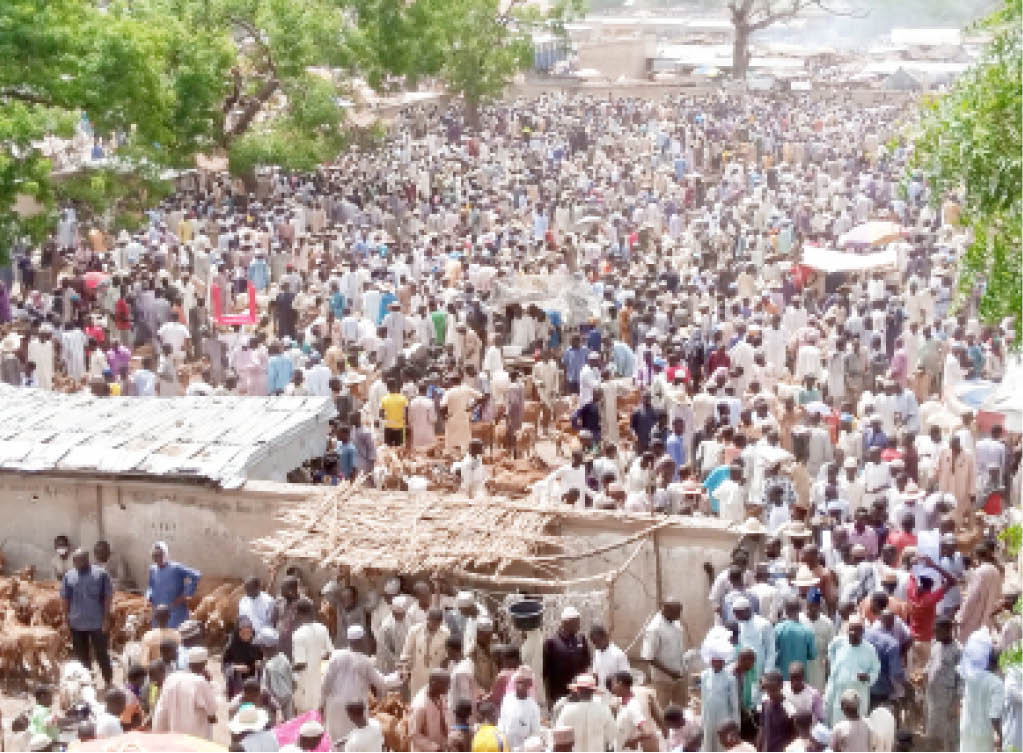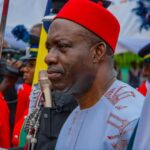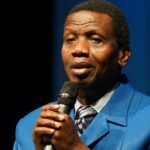Maigatari, the headquarters of Maigatari Local Government Area is a town along the Nigeria-Niger Republic border in the northern part of Jigawa State.
The town is blessed with a large market which operates weekly since its establishment about 150 years ago.
People from parts of Nigeria and other countries can be seen at the market every Thursday for different trading activities, giving the market its international status.
Alhaji Muhammadu Ibrahim, the Sarkin Kasuwa of Maigatari international market, told Daily Trust Saturday a brief history of the market.
“This market is blessed by God right from the time it started. Initially, it was a small local market, known as Duriya, which served as a meeting point between the people from Kano (Kanawa) and those of the present-day Niger Republic (Yan Faranshi).
“In those days, the Kanawas came with their ornaments, locally weaved textiles and dyed clothing materials to sell to the Yan Faranshi, who brought potash, raffia, doum tree fruits (locally known as Goriba), especially the dried peels of the fruit and a special type of soil called Koya in Hausa. These were the commodities traded at that time and as time went by, it was decided that the Duriya should be upgraded to a market, and Thursday was adopted as the market day,” he narrated.
Alhaji Ibrahim said at that time there were no motor vehicles and as such people spent days travelling either on foot or on animals to reach the market.

That upgrade, according to him, made the market popular and animal stalls were gradually introduced, such as the camel stall, cattle stall, donkeys and horses as well as sheep and goats stalls.
Animal trading would eventually overshadow all other tradings in the market.
“Today, if you have a message to send to Mali, you can get somebody that is going there from this market. The same thing applies to Chad, and Cameroun, not to talk of the people of Niger Republic that are as if we are in the same town,” Alhaji Ibrahim said.
He added that people from Lagos, Ibadan, Warri and other cities of the north and southern parts of the country also come to Maigatari.
Revenue generation
The Sarkin Kasuwa acknowledged that the market rakes in huge revenue for the state government and the host local government is benefiting from it as well. This is coupled with the economic development brought by the presence of the market in Maigatari.
“The peak of the market is in the months of October to January during which at least N1billion is traded in the market every week,” Alhaji Ibrahim added.
Cattle stall
Alhaji Muhammadu Danduwa, the head of the cattle section of the market, said at the peak of business activities, they get at least 5,000 cows, bulls and calves and about 70 per cent is traded on average.
He said the animals were brought to the market from parts of Niger, Chad and Cameroon while a majority of buyers come from Lagos, Warri, Port Harcourt, and Kaduna, among other places.
He added that animals are taken as far as Ghana when the borders were opened, but the partial border closure and the lockdown as a result of the COVID-19 pandemic have hampered the trans-border trade.

Sheep and Goats stall
The head of the sheep and goats section, Malam Isa Duwa, unlike what is obtainable in the cattle stall, smaller animals like sheep and goats mainly come from parts of Niger Republic and northern Nigeria. He added that buyers load trailers to Lagos, Benin, Asaba and Port Harcourt, among many other cities across the country.
“There are also miners at Damagaram in Niger Republic where the animals are supplied to. And the prices range from N15, 000 to as much as N85,000,” he said.
Duwa said several thousands of sheep and goats are brought to the market which he describes as the “mother of livestock markets in Africa” and millions of naira traded every week just in his stall.
Donkeys
Alhaji Aminu is the Secretary of the Donkey Sellers Association of the Market. He explained that the ban on export of donkeys placed by authorities of the Republic of Niger has greatly hampered the business in the market.
“In those days we load at least 35 trailers of donkeys every week, but now what we load does not surpass four trailers, which means just about 600 to 800 donkeys every week.
“We get donkeys now from Yobe, Kano and Borno states alone as Niger Republic has banned the export of the animals. That is why you can see that the population of the donkeys has reduced,” he said.
He said the buyers mostly come from Imo and Delta states with some coming from Kano for farming and sand transportation purposes.
A donkey, according to him, sells between N15,000 and N50,000.
Commenting on the ban on the export of donkey skin, Alhaji Aminu said, “We have had that it is banned and to be frank with you, we don’t even know what the skins are used for, but our concern is that whenever government wants to take a decision, they should consider other implications, such as how that decision could affect the lives of those who engage in such trading, because most of the problems of insecurity are caused by unemployment.”
Camels
Ibrahim Abdullahi is the head of the camel section told our correspondent that with the approach of Sallah the camel market is rising with prices ranging from N80,000 to N110,000 for the young camels.
“For the big ones, the price could reach up to N300,000 and not everyone can afford that. That is why we have a lot of the big ones unsold,” he said.
He said most of the camels are imported from Niger Republic, saying, however, that some Nigerians are now rearing the animal for commercial purposes.
Most of the buyers, according to him, are butchers, but some farmers from Kebbi State use it for land cultivation.
Horses
Malam Audun Gumel is the head of the section. He told Daily Trust Saturday that the business of horse selling in Gumel emirate started in their family house before it was moved to the Maigatari Market.
“When we were young, our father was the head of this business and when he died, the Emir of Gumel made me the head,” he said.
He said horses are brought from Niger Republic, Sokoto, Yobe, Ningi in Bauchi State as well and parts of Kano and Jigawa states.
“There are those of N50,000. But in those days when we were young, nobody will buy the ones of this size; they are set free for anyone who wants to catch and go with them. There are stallions of N200,000 to N500,000 as well.”

Other segments
One other prominent segment of the Maigatari market is the grains segment with sesame seed being the most popular. There are also red beans, mostly grown in the republic of Niger, and white beans mostly grown in Nigeria. There are also millet, corn and other types of both food and cash crops in the segment.
All other things such as ornaments, closing materials, wares, kitchen utensils and numerous other commodities traded in the market.
Economic impact
Speaking on this, Alhaji Sani Alhasan Muhammad, the District head of Maigatari, said the market has always been very significant economically right from the time of the Native Authority (NA).
“It was, at that time, the main source of revenue with which Gumel Emirate sustained itself. A lot of revenue was generated in the market due to its international nature. This had greatly assisted the emirate, then. After independence, the market continued to contribute to the government in the old Kano state and presently Jigawa state,” he said.
Off the market and into the town, our reporter gathered that there is hardly a household in Maigatari that does not sell one thing or another on the market day, and that has improved the living standard of the dwellers of the town and its neigbouring towns and villages.
Security
In spite of the international nature of the market, the leadership of the market said insecurity has never been a serious challenge as adequate measures have been taken to prevent any breach of security in the market.
Personal experiences of some traders
Alhaji Umaru is one of the traders who deal in the cattle business. He says the market is a blessed one and the commodities sold there are of great quality.
“I usually buy bulls and load them, especially to the southwestern part of the country. I built a house, performed Hajj and sponsored my parents too to Hajj through this business. I thank God for that and pray to Him to bless the market more,” he said.
He also called on government to utilize the revenue generated in the market to provide sheds and water as well as other basic needs of the market.
Another trader, who deals in horses, Ibrahim Namadina Hadejia, said the market was recovering from the COVID-19 lockdown.
“I usually go to Jajimaji, Machina and Geidam all in Yobe state, to purchase horses and bring them here to sell and people come from different parts of the country and some foreign countries to buy from us.
“As a young man of about 35 years of age, I thank God, because I have three wives and eight children, and as I speak with you, the ninth child is on its way. Allah has blessed me in this market such that whenever I come out, I get more than my family’s need.
“I am educated and I don’t care about government job. If you give me a job of N100,000 a month I will not accept it because I earn more than that in this business,” he said.
Challenges of the market
The major problems of the market as highlighted by the traders and leadership of the market was that of lack of water for the animals and proper shed for the traders.
They pleaded with the authorities concerned to provide adequate sheds in the form of verandas and canopies as well as water supply for human beings and the animals alike.
There is also a problem of drainages, they said, adding that during the rainy season, there are places that water stagnates making it impossible for anyone to do anything there.
Other complaints made by the traders, especially camel and horse stalls was that of some insects locally known as kurdumus, which disturb both the animals and the traders as well.
The Sarkin Kasuwa also appealed to the government to assist local marketers in Maigatari, saying it was mostly visitors who have enough capital that reap the benefits of the market.
On his part, the district head of Maigatari, called on government to renovate roads going into the town from different parts as that will further upgrade the standard of the market.
He also called for the improvement of security, going by the cosmopolitan nature of the traders in the market.
There are also allegations of corruption with regards to the revenue generated in the market.
A source told Daily Trust Saturday that in most cases, two different receipts were used to collect revenue, one of which was the original government receipt, while the other was meant for diversion.
Attempts to get the local government chairman’s reaction to the allegation proved abortive.
In his reaction, the Jigawa state Commissioner for Commerce, Alhaji Salisu Zakari, said his ministry relates to the Magatari market on two fronts and does not include revenue collection, which he said was solely done by the local government under the supervision of the Ministry for Local government and Chieftaincy Affairs.
“First of all, there is a state market modernization programme in which the state, the local government and the private sector participates in the PPP arrangement. The state will provide critical infrastructure such as roads and drainages and my ministry is responsible for that.
“Secondly, there is this trade corridor agreement under the Nigeria/Niger Joint Commission for Cooperation in which Jigawa is involved and under the agreement, we are to build a modern abattoir in Maigatari, and it is this COVID-19 pandemic that halted the construction,” he said.
He said according to the constitution of Nigeria, markets are under the local government in which they are situated, thus all revenues from markets are collected by the local governments.
“In an ideal situation, when the revenue is collected by the local government, they will remit it to the state treasury and if they need anything for the running or maintenance of the market, they write a request which is approved by the ministry for local government,” he added.
He, however, acknowledged that there are leakages identified as regards to the issue of the revenue and the state government would look for ways to block or at least reduce such leakages.

 Join Daily Trust WhatsApp Community For Quick Access To News and Happenings Around You.
Join Daily Trust WhatsApp Community For Quick Access To News and Happenings Around You.


